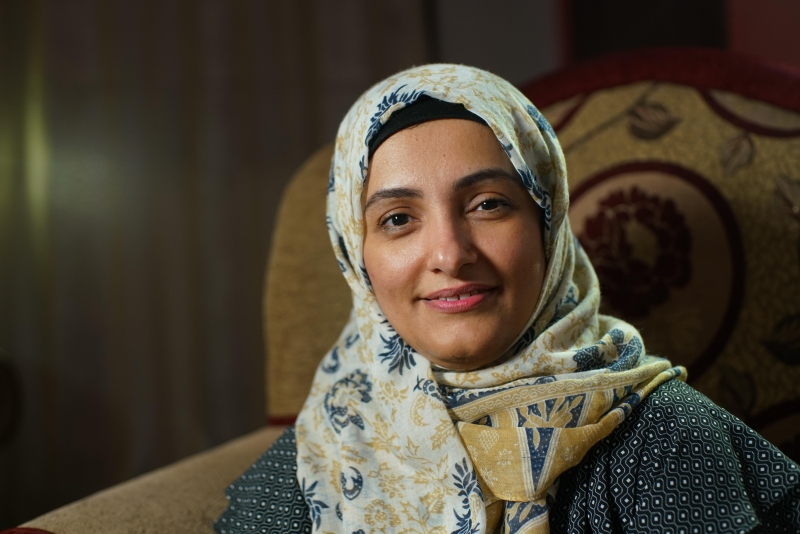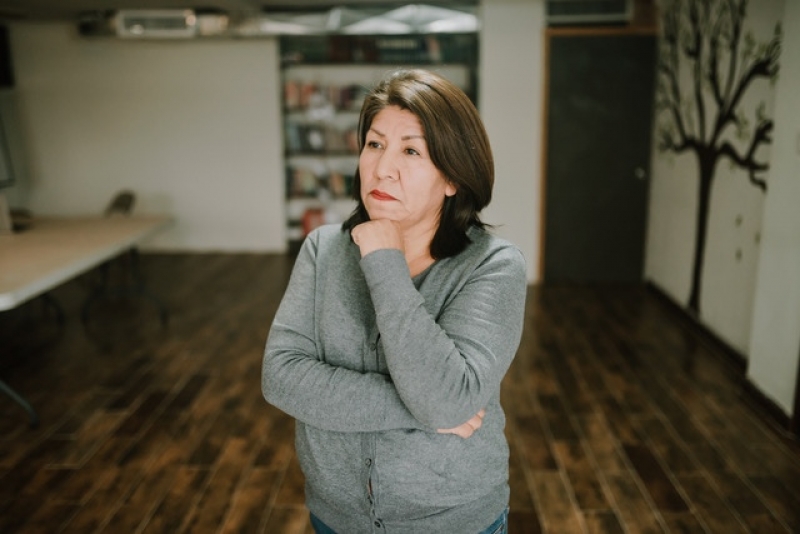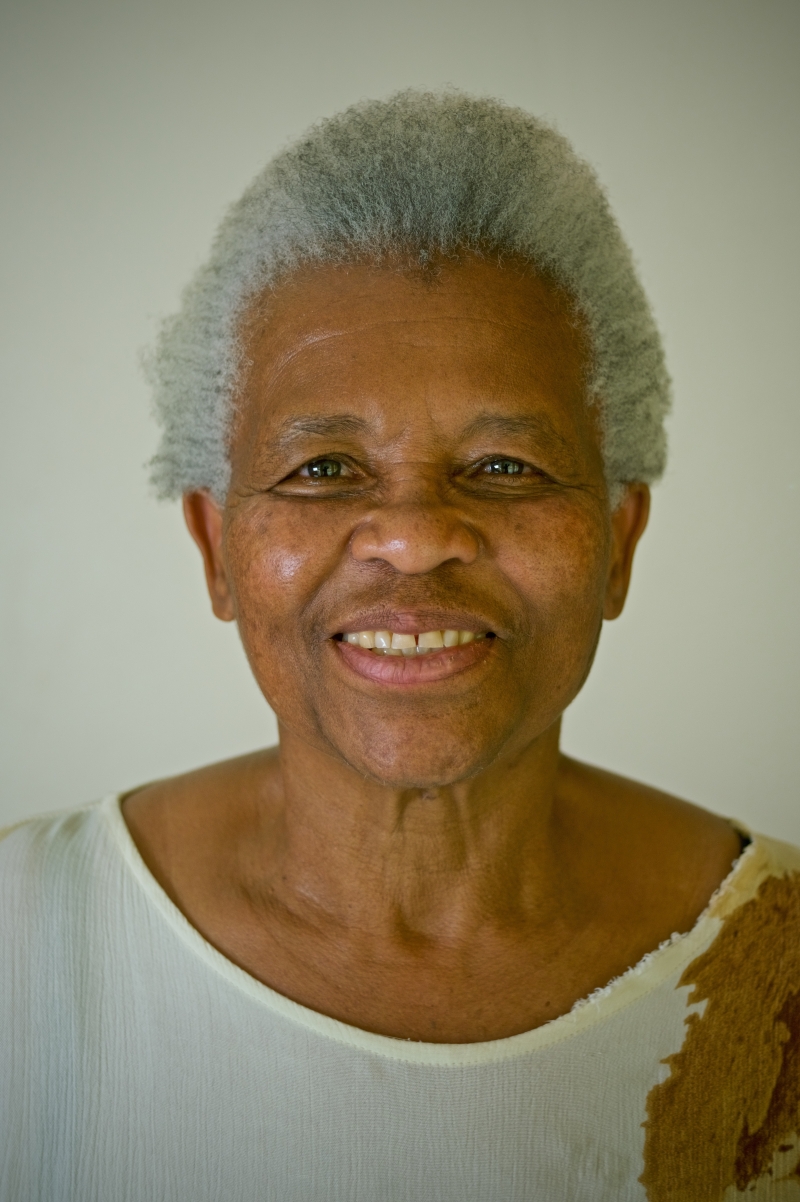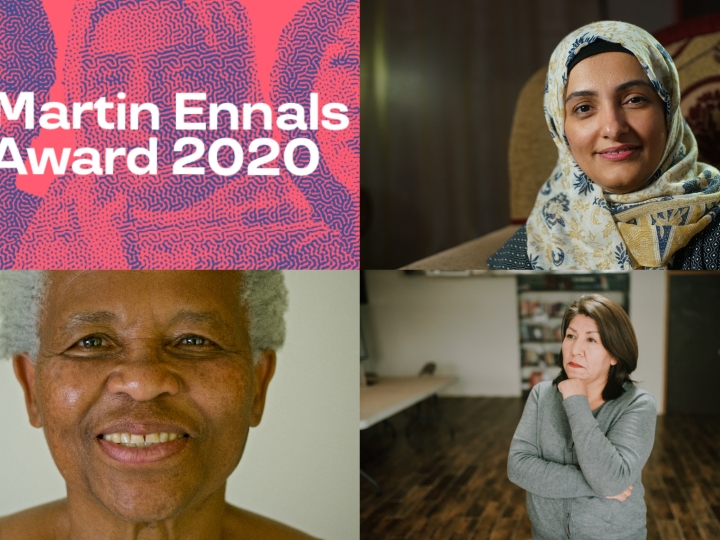Read more on the Martin Ennals Award's webpage.
The NHRF stands in solidarity with all human rights defenders who use non-violent means and acts to defend human rights and who work determinedly, as these women do in mind, body, and spirit, to build a world of equality that is free from violence and oppression. Women human rights defenders bravely take on this role and confront not only powers of oppression and indifference but also confront discrimination against their gender that adds another layer of burden and complexity to their work. Just choosing to be a woman human rights defender is an act of resistance against gender stereotypes and inequality.
Huda Al-Sarari (Yemen)

Huda Al-Sarari is a Yemeni lawyer and human rights activist. She graduated in Sharia and Law from Aden University in 2011 and holds a masters in Women's Studies and Development from the Women's Centre at Aden University. She has been working for more than a decade with numerous local Yemeni human rights organisations such as the Yemeni Women's Union, the Adalah Centre for Rights and Freedoms and the National Committee to Investigate Allegations of Human Rights Violations. Over the last years, she investigated, exposed and challenged the network of secret prisons run by foreign governments in Yemen since 2015, where thousands of men and boys suffered arbitrary detention and torture. Huda Al-Sarari collected evidence on more than 250 cases of abuse taking place within the prisons and succeeded in convincing international organisations such as Amnesty International and Human Rights Watch to take up the cause. Despite the threats, defamation campaigns and sacrifices she and her family endured, she continues to stand alongside the families of those who have disappeared and pursue justice. In October 2019, she was honoured as a co-finalist by the Aurora Prize.
Norma Ledezma (Mexico)

Norma Librada Ledezma began her career as a human rights defender the day her daughter, Paloma, disappeared on her way home from school in Chihuahua, Mexico. Since that moment, Norma has dedicated herself to seeking justice for the families and victims of femicide, disappearance and human trafficking in Mexico. She is one of the founders and Director of Justicia Para Nuestras Hijas, a local organisation that offers legal counsel and support to ongoing cases. She is a member of the Board of the Centre for Justice for Women of Chihuahua, the Consultative Assembly of the Executive Committee for Victim’s Redress, and Deputy Coordinator of the Committee for Prevention and Redress of Domestic and Gender-based Violence. Norma has supported over 200 investigations into cases of femicide and disappearances, on behalf of both male and female victims. As a party in the case over her daughter’s murder, which was brought before the Interamerican Commission on Human Rights, Norma is responsible for the creation of a Special Prosecutor for Women Victims of Violence in her native state of Chihuahua. In spite of having received numerous death threats, she continues with her human rights work.
Sizani Ngubane (South Africa)

Sizani Ngubane is a South African activist who has dedicated her life to promoting gender equality, fighting for women’s and indigenous people’s rights. After her initial career as an activist with the ANC, she became Provincial Coordinator of the SA Women’s National Coalition in 1991 and contributed to the development of the Women’s Charter for Effective Equality in South Africa. That contribution was instrumental in building the section on rural and indigenous women of the Bill of Rights within the South African Constitution. In 1998, Sizani founded the Rural Women's Movement (RWM), a unique organisation striving against gender-based violence and for women’s access to land, education, land rights, property and inheritance rights in courts operating under customary law. Recently, she is focused on fighting against traditional courts legislation, such as the Ingonyama Trust, which could lead to the misappropriation of many families’ land in KwaZulu-Natal Province.

